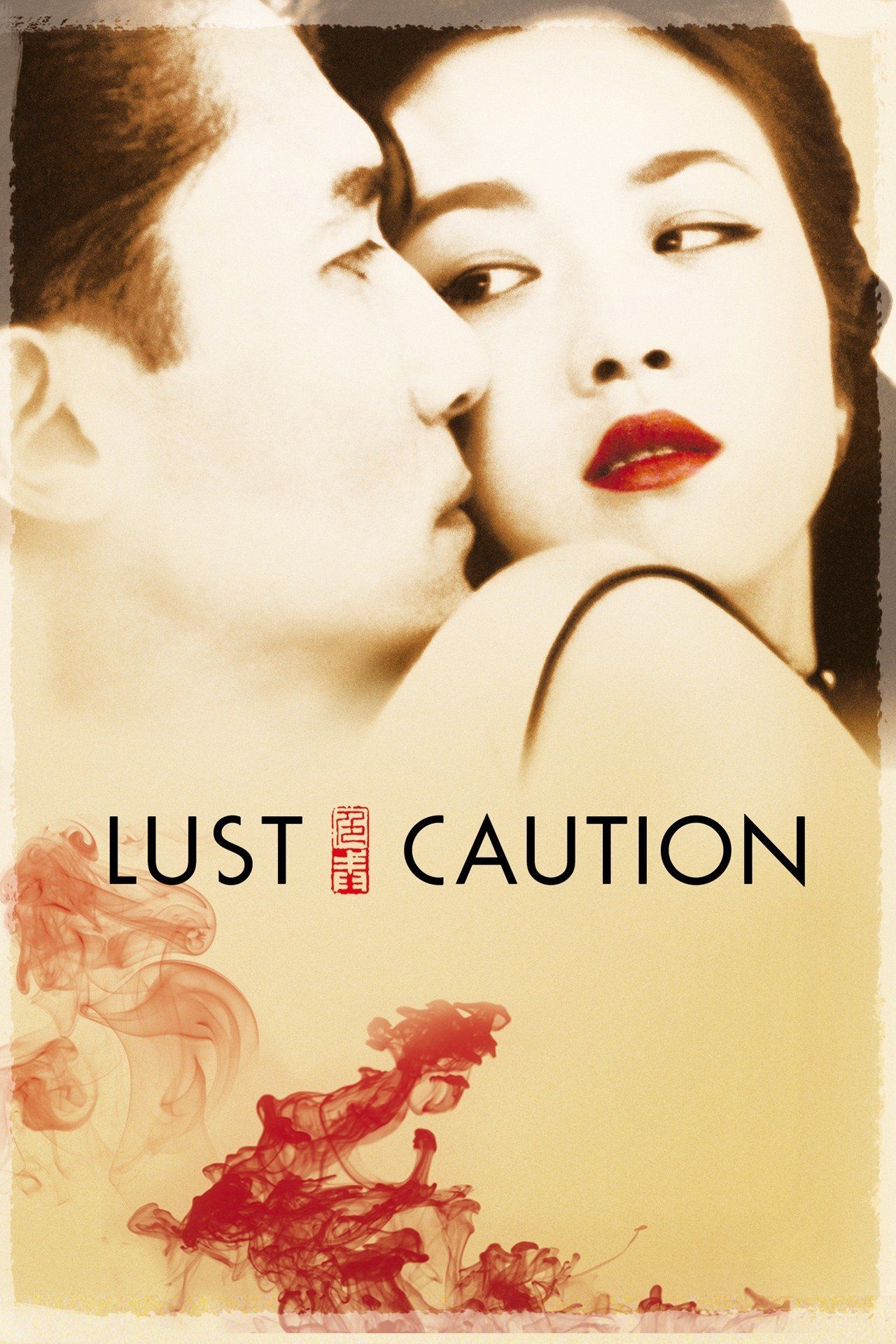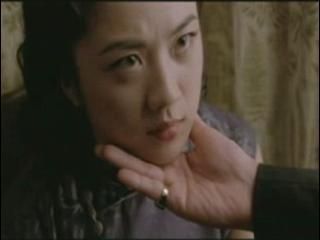

During World War II era, a young woman, Wang Jiazhi, gets swept up in a dangerous game of emotional intrigue with a powerful political figure, Mr. Yee.
Where to Watch Lust, Caution
Lust, Caution Ratings & Reviews
- CrossCutCriticMay 8, 2025To You, Who Gave Yourself Fully—Even When It Meant Your End “Love is as strong as death, jealousy as cruel as the grave.” — Song of Songs 8:6 --- I. You Thought It Was a Role. But Something Changed. You signed up for a mission. You learned your lines. You dressed the part and prepared to use your body like a blade. But somewhere between seduction and betrayal, you began to feel. Not for the cause. Not for the resistance. For him. You never meant to love the man you were sent to destroy. But love doesn’t wait for permission. And it doesn’t ask whether the one it chooses deserves to be saved. In Lust, Caution, Wong Chia Chi is a university student turned spy. She is told to lure a collaborator, Mr. Yee, into an affair so he can be assassinated. But what begins as performance becomes a crucible. Her seduction opens something in her. And in him. Not tenderness—something stranger. Recognition. Hunger. Mutual captivity. He is cruel. Controlling. But with her, he becomes vulnerable. And in her final act, she gives him what no one else has: mercy. She warns him. He escapes. She is executed. If you’ve ever started something you thought you could control and found yourself unraveling into someone else’s soul— if you’ve ever loved someone you weren’t supposed to, and let them go when you could have damned them— then you already know this gospel. It is not about rescue. It is about ruin. Holy ruin. --- II. The Body as Battlefield and Altar They told her to use her body. To bait him. Break him. To turn her skin into a weapon. But her body would not remain neutral. Wong Chia Chi enters Mr. Yee’s bed as a spy. She emerges, slowly, as a woman who has tasted her own soul in the friction between duty and desire. The sex is brutal at first. He dominates. She submits. But something shifts in their rhythm— not gentleness, but recognition. A shared violence. A mirrored wound. And that is where the cross begins to appear: not in pain alone, but in exposure. This is not an affair. It is a liturgy of vulnerability. She gives herself—not just as a tactic, but as a prayer no one asked her to pray. And in doing so, she begins to mean it. Her body, once a mask, becomes a confession. She is no longer pretending. And that is what damns her. Because in a world of espionage and deception, truth is the most dangerous act of all. If you’ve ever surrendered yourself in love not to gain, but to reveal— not to trap, but to offer— then you know this altar. It is not safe. It is not pure. But it is sacred. And sometimes, sacrifice means lying down on the very altar you were meant to desecrate. --- III. The Mercy That Betrays the Mission She could have let them pull the trigger. She was in position. He was exposed. Everything was ready. And then she said it— softly, urgently, not like a soldier, but like someone who had seen the soul behind the sin. “Go.” With that one word, she trades justice for mercy. She betrays the cause. She signs her own death. But in doing so, she becomes something more than a martyr. She becomes Christlike. Because love, in its truest form, does not calculate what it costs. It gives itself away even when it knows it won’t be saved. Wong Chia Chi does not let him go because he is good. She lets him go because something in her has changed— because she has come to see that even monsters can bleed when touched with mercy. And so she forfeits her own redemption. She is executed in silence. No honor. No monument. Just the echo of a decision that only she will ever understand. If you’ve ever chosen someone’s freedom over your own safety, if you’ve ever offered grace to someone who didn’t deserve it— even when the cost was everything— then you know this cruciform moment. This is not romantic. It is ruinous. But it is holy. Because sometimes the most faithful act of love is letting the guilty go free, and bearing the sentence yourself. --- IV. The Man Who Was Loved and Didn’t Know How to Be Saved He had power. He had control. He had silence built into every room he entered. But when she said “Go,” something inside him collapsed. Mr. Yee isn’t redeemed. He’s haunted. He doesn’t run from the assassination out of strategy— he runs because, for one unbearable moment, he was seen. Not as a spy. Not as a traitor. As a man. He doesn’t ask why she did it. He doesn’t thank her. He just leaves. And the next time we see him, he is signing her death warrant. Not because he wants to. Because he doesn’t know what else to do with what she gave him. He was touched by mercy— and it unmade him. If In the Mood for Love was the ache of love unspoken, Lust, Caution is the horror of love received too late. Mr. Yee will survive. But he will never be free. Because someone gave him something sacred and he crushed it because he didn’t know how to carry it. If you’ve ever been forgiven and felt it undo you— if someone once offered you tenderness you couldn’t return— then you know this man. This is not condemnation. This is grief. Because sometimes the cross appears not in the one who dies, but in the one who walks away forever marked by the love he couldn’t hold. --- V. A Passion Without Resurrection There is no miracle. No rescue. No voice from heaven saying this was worth it. There is only the silence of a girl who gave everything, and the emptiness of a man who did not know how to keep what he was given. Lust, Caution does not offer a resurrection. It ends in death. But not just physical death— the death of possibility, the death of return, the death of ever being known again without pain. And yet— It is not meaningless. Because Wong Chia Chi’s final act was not weakness. It was love— costly, uncovered, unsanctioned by any dogma. She gave herself not as an object, not as a spy, but as a person who chose mercy in the moment when vengeance was most justified. This is a Passion story. Not because it ends in triumph, but because it ends in surrender. And that surrender, though it led to her execution, was not in vain. It left a mark on the man who survived. A silence he will never be able to escape. If you’ve ever loved with open hands and watched that love be lost or destroyed— but still believe it mattered— this film is your witness. Not every crucifixion comes with resurrection. Some just echo through the lives of the ones who didn’t understand what they were given. --- Postscript Some gospels are not written in light. They’re written in skin. In breath. In the tremble before a warning that comes too late to save you. Lust, Caution is not about espionage. It’s about the terrifying holiness of being known— and what it costs to love someone when you know they will break the thing you offer. The cross in this film does not redeem. It simply reveals. And in that revelation, everything is lost. But nothing is wasted. --- If This Film Marked You, You May Also Be Drawn To: In the Mood for Love – For the ache of restraint and the gospel of what was never touched. Late Spring – When love gives itself away before it's asked to—and disappears without reward. Tokyo Story – For the mercy of presence, and the grief of being quietly forgotten. An Autumn Afternoon – For those who outlasted their usefulness and faded with grace. Hiroshima Mon Amour – A psalm for memory, mercy, and the love we carry into silence. Past Lives – When another lifetime wasn’t enough, and love became longing across timelines. Winter Light (in development) – For those who sought God and heard only silence. --
- Desmond DaleJanuary 24, 2025From the opening scene, I fell in love with its visual style. Some of the frames are like looking at hyper realistic oil paintings. It's tastefully ornate with lots subdued cool tones like emerald green and desaturated blues. The characters are always beautifully framed with natural warm lighting utilized like a dimly light spotlight revealing their subtle nonverbal cues. The plot is not too unlike the ancient tale of Judith and Holderness albeit with a much different ending. Lust, Caution kind of has the feel of an eastern neo-noir, which utilizes the ruthlessness of war as its source of foreboding doom. Its subjects are forbidden lovers who must make a choice between duty/political ideals and desire/love. There relationship is built on a tumultuous foundation and its physicality embodies the thin line between hate and desire and pleasure and pain like a microcosm of the war outside between the rebel forces and regime in rule. I loved every second that Tony and Tang were on screen and no, not just the intense sex scenes. In a way, the film was kind of victim of its own success. I was so enthralled and intrigued by the fire between the central lovers that at times I found the narrative shifts to to ancillary characters and relationships to be a bit distracting. That's one of the few flaw that I can think of along with just not being the biggest fan of the film's overall narrative structure and the jarring tone changes.
Lust, Caution Trivia
Lust, Caution was released on September 24, 2007.
Lust, Caution was directed by Ang Lee.
Lust, Caution has a runtime of 2h 38m.
Lust, Caution was produced by Bill Kong Chi-Keung, Ang Lee, David Lee.
The key characters in Lust, Caution are Mr. Yee (Tony Leung Chiu-wai), Wong Chia Chi / Mrs. Mak (Tang Wei), Mrs. Yee (Joan Chen).
Lust, Caution is rated NC-17.
Lust, Caution is an Action, Drama, Romance film.
Lust, Caution has an audience rating of 8.4 out of 10.
























